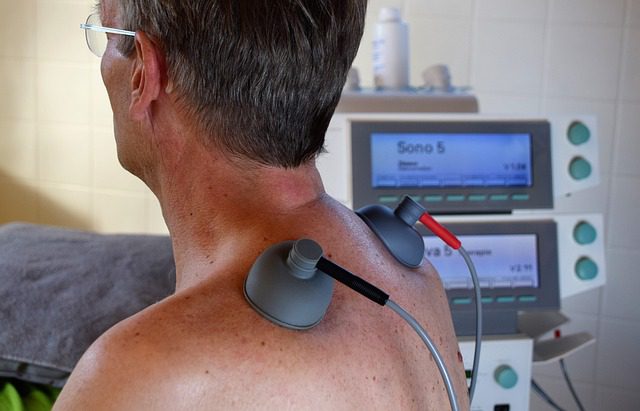Discover affordable health insurance plans in Nigeria. Compare costs, coverage, and providers. Get quality healthcare without breaking your budget.
At 3:47 AM on a rainy Thursday morning, Fatima Yusuf woke up to her 8-year-old daughter Aisha crying in severe abdominal pain. Rushing to the nearest hospital in Kano, Fatima’s worst fears were confirmed—Aisha needed emergency appendix surgery.
The bill? ₦380,000. As a single mother earning ₦65,000 monthly as a civil servant, Fatima faced an impossible choice: watch her daughter suffer or plunge her family into crushing debt.
This scenario plays out thousands of times across Nigeria every day. Families are forced to choose between healthcare and financial survival, often with devastating consequences.
Yet affordable health insurance options exist that could have saved Fatima from this nightmare—if only she had known about them.
The Nigerian healthcare system presents unique challenges for ordinary citizens. With out-of-pocket healthcare expenses consuming up to 70% of total health spending, millions of Nigerians postpone or forgo necessary medical care due to cost concerns.
However, the landscape is changing rapidly, with new affordable health insurance options emerging to serve the mass market.
Understanding Nigeria’s Health Insurance Revolution
Nigeria’s health insurance market is experiencing unprecedented transformation. Recent regulatory reforms have opened the market to innovative providers focusing on affordable coverage for low and middle-income earners. The National Health Insurance Authority (NHIA) has announced ambitious targets of extending health insurance coverage to 30 million Nigerians by 2025, demonstrating the government’s commitment to universal healthcare access.
The NHIA has already surpassed the 2024 presidential target for health insurance enrollment and is now set to increase growth coverage by an additional 20% in 2025. This growth signals a fundamental shift in how Nigerians access healthcare services.
The statistics are compelling: Nigeria spends only 3.89% of its GDP on healthcare, far below the WHO-recommended 5%. This underfunding creates a gap that private health insurance is beginning to fill, particularly for preventive care and basic medical services that form the foundation of affordable health insurance.
The Growing Market Opportunity
With over 200 million Nigerians and insurance penetration below 5%, the market potential is enormous. New players are entering with technology-driven solutions that dramatically reduce administrative costs, passing savings to consumers through lower premiums and more comprehensive coverage options.
Types of Affordable Health Insurance Plans
1. Basic Essential Coverage (₦12,000 – ₦35,000 annually)
Designed for low-income earners and young professionals, these plans provide fundamental healthcare protection without straining tight budgets.
Outpatient Services Include:
- General practitioner consultations (up to 24 visits annually)
- Basic diagnostic tests (malaria, typhoid, blood work, urinalysis)
- Essential medications (generic drugs only)
- Routine vaccinations and immunizations
- Basic eye and dental examinations
Emergency Care Coverage:
- Emergency room visits (up to 4 visits annually)
- Accident and emergency treatment
- Ambulance services (limited coverage)
- Emergency prescription medications
Preventive Care Benefits:
- Annual health screenings
- Blood pressure and diabetes monitoring
- Family planning services
- Basic nutritional counseling
Real-Life Example: Kunle, a 25-year-old mechanic in Ibadan, pays ₦18,000 annually for basic coverage. When he contracted malaria and typhoid simultaneously, his treatment costs of ₦45,000 were fully covered, saving him two months’ earnings.
2. Family Protection Plans (₦65,000 – ₦180,000 annually)
Comprehensive coverage designed specifically for families with children, addressing the unique healthcare needs of growing families.
Expanded Outpatient Care:
- Unlimited general practitioner visits
- Specialist consultations (up to 6 visits annually)
- Advanced diagnostic tests (X-rays, ultrasounds, ECGs)
- Prescription medications (generic and selected brand names)
- Chronic disease management programs
Maternity and Pediatric Services:
- Comprehensive prenatal care and delivery (up to ₦200,000 coverage)
- Postnatal care for mother and baby
- Complete childhood vaccinations and development monitoring
- Pediatric consultations and specialized treatments
- Family planning services and contraceptives
Limited Inpatient Coverage:
- Hospitalization for medical emergencies (up to 5 days annually)
- Day surgery procedures
- Accident-related treatments and rehabilitation
- Emergency surgical procedures
Case Study: The Adebayo family in Lagos (parents + 3 children) pays ₦120,000 annually. When their youngest child required emergency treatment for severe asthma, the ₦180,000 hospital bill was covered completely, and ongoing asthma management saves them ₦25,000 monthly in medication costs.
3. Comprehensive Mid-Range Plans (₦120,000 – ₦350,000 annually)
Balanced coverage for middle-class families seeking extensive healthcare protection without premium-level costs.
Full Spectrum Medical Care:
- Unlimited outpatient consultations with any provider
- Comprehensive specialist access (cardiology, orthopedics, gynecology, neurology)
- Advanced diagnostics (MRI, CT scans, specialized laboratory tests)
- Full prescription drug coverage (generic and brand names)
- Mental health services and professional counseling
Enhanced Inpatient Services:
- Hospitalization coverage (up to 30 days annually)
- Surgical procedures (up to ₦1,000,000 coverage)
- Intensive care unit treatment
- Private room accommodations
- Specialized medical equipment and procedures
Wellness and Preventive Programs:
- Comprehensive annual health examinations
- Cancer screening programs and early detection
- Cardiovascular health monitoring and management
- Diabetes prevention and ongoing management
- Professional nutritional counseling and weight management
>>Riskiest vs Safest Investment in 2025: What You Need to Know Before Investing Your Money

Leading Affordable Health Insurance Providers in Nigeria
Government-Backed Options
National Health Insurance Authority (NHIA)
The reformed national program offers the most affordable coverage options for Nigerians across all economic levels.
Formal Sector Scheme:
- Automatic enrollment for government and private sector employees
- Employer contributes 10%, employee contributes 5% of basic salary
- Comprehensive coverage including all dependents
- Access to federal medical centers and accredited private hospitals
- No additional premium payments required
Informal Sector Program:
- Voluntary enrollment starting at ₦15,000 annually
- Heavily subsidized premiums for low-income earners
- Community-based enrollment and flexible premium collection
- Basic but comprehensive coverage package
- Coverage extends to self-employed individuals and their families
Vulnerable Group Program:
- Free coverage for pregnant women and children under 5
- Subsidized coverage for elderly and disabled persons
- Special programs for orphans and vulnerable children
- Community health insurance schemes in rural areas
The new National Health Insurance Act establishes a fund for vulnerable groups, providing subsidy for health insurance coverage for vulnerable persons and payment of health insurance premiums for indigents.
Private Insurance Companies
AIICO Insurance
Pioneering affordable health insurance with innovative products designed for mass market appeal.
My Health Plan:
- Individual coverage: ₦25,000 annually
- Family of four: ₦85,000 annually
- Comprehensive outpatient coverage
- Emergency inpatient services
- Nationwide provider network with over 500 hospitals
Essential Care Package:
- Ultra-affordable: ₦15,000 annually
- Basic outpatient services covering common illnesses
- Emergency care coverage for accidents and acute conditions
- Generic medication included in all consultations
- 24/7 telemedicine consultations via mobile app
AIICO’s Success Story: Mrs. Okoro, a trader in Onitsha, enrolled her family of five for ₦95,000 annually. When her husband suffered a stroke, the ₦650,000 treatment cost was covered completely, and ongoing rehabilitation continues under the plan.
Leadway Assurance
Leadway Health provides affordable, customer-focused and value-based health insurance packages leveraging digital technology and artificial intelligence.
Leadway Health Plus:
- Starting at ₦30,000 for individuals
- Scalable family coverage options
- Strong focus on preventive care and wellness
- Comprehensive chronic disease management
- 24/7 telemedicine support with qualified doctors
Young Professional Plan:
- Specifically designed for ages 18-35
- Competitive premium: ₦22,000 annually
- Emphasis on preventive care and early intervention
- Mental health services included
- Integrated fitness and wellness programs
AXA Mansard
AXA Mansard offers flexible health insurance plans accessible at more than 1,000 healthcare centres across Nigeria.
Smart Health:
- AI-powered health assessments and risk profiling
- Personalized wellness programs based on individual needs
- Telemedicine-first approach reducing costs
- Competitive pricing starting at ₦28,000
- Comprehensive provider network nationwide
Family Care Plus:
- Coverage for up to 6 family members
- Comprehensive maternity benefits included
- Specialized pediatric care emphasis
- Chronic disease management programs
- Annual health screenings and wellness checkups
Health Maintenance Organizations (HMOs)
Total Health Trust
Nigeria’s largest HMO with extensive affordable options and the widest provider network.
Basic Care Plan:
- ₦20,000 annually for individuals
- Primary focus on primary healthcare delivery
- Strong preventive care emphasis
- Limited specialist coverage with referral system
- Extensive provider network in major cities and towns
Family Wellness Plan:
- ₦75,000 for families up to 5 members
- Comprehensive preventive care programs
- Full maternity and pediatric services
- Emergency care coverage 24/7
- Chronic disease management with specialist support
Hygeia HMO
Technology-driven affordable healthcare with innovative service delivery models.
Essential Health Package:
- Ultra-affordable at ₦18,000 annually
- Telemedicine consultations with qualified doctors
- Basic laboratory tests at certified centers
- Generic medications included
- Emergency care coverage for accidents
Comprehensive Family Plan:
- ₦95,000 for complete family coverage
- Unlimited consultations with any provider
- Specialist referrals when medically necessary
- Limited inpatient care for emergencies
- Dental and optical coverage included
RedCare HMO
Affordable plans specifically designed for young professionals and growing families.
Young Adult Plan:
- ₦16,000 annually (ages 18-30)
- Focus on preventive care and wellness
- Mental health services and counseling
- Fitness program integration and support
- Comprehensive telemedicine support
Career Starter Package:
- ₦24,000 annually for young professionals
- Comprehensive outpatient care coverage
- Emergency services 24/7
- Full prescription drug coverage
- Annual health screenings and assessments
Clearline HMO
Clearline HMO offers affordable health insurance plans with extensive coverage, with personal care plans starting from ₦50,000, and the ultra-affordable KiaKia Plan priced at ₦5,000 exclusively available through telemedicine.
Factors Affecting Health Insurance Costs in Nigeria
Age and Health Status
Insurance premiums vary significantly based on age and current health condition, reflecting actuarial risk assessments.
Age-Based Pricing Structure:
- Ages 18-25: ₦12,000-₦30,000 annually
- Ages 26-35: ₦18,000-₦45,000 annually
- Ages 36-45: ₦25,000-₦65,000 annually
- Ages 46-55: ₦35,000-₦85,000 annually
- Ages 56+: ₦45,000-₦120,000 annually
Health Status Impact on Premiums:
- No pre-existing conditions: Standard rates apply
- Controlled chronic conditions: 15-30% premium increase
- Uncontrolled chronic conditions: 30-50% premium increase
- High-risk conditions: May require specialized coverage or exclusions
Geographic Location
Your location significantly affects both insurance costs and provider availability across Nigeria.
Urban Centers (Lagos, Abuja, Port Harcourt, Kano):
- Highest provider competition leading to better rates
- Most affordable premiums due to economies of scale
- Extensive provider networks with multiple hospital options
- Access to advanced medical facilities and specialists
- Quick claim processing and customer service
Secondary Cities (Ibadan, Enugu, Kaduna, Jos):
- Moderate competition among providers
- Reasonable premium rates with good value
- Growing provider networks
- Good medical facilities with basic specialist services
- Standard claim processing times
Smaller Towns and Rural Areas:
- Limited provider options reducing competition
- Higher premiums due to limited infrastructure
- Fewer medical facilities and specialists
- Basic coverage options with limited services
- Longer claim processing times
Coverage Scope and Benefits
The extent and depth of coverage directly impacts premium costs and out-of-pocket expenses.
Basic Outpatient Only:
- Lowest premiums: ₦12,000-₦25,000
- Limited to essential primary care services
- Generic medications only
- Basic diagnostic tests
- Primary care focus with referral requirements
Outpatient Plus Emergency:
- Moderate premiums: ₦20,000-₦45,000
- Comprehensive outpatient care
- Emergency room coverage 24/7
- Accident treatment and rehabilitation
- Limited inpatient services for specific conditions
Comprehensive Coverage:
- Higher premiums: ₦45,000-₦150,000
- Full spectrum medical services
- Inpatient hospitalization coverage
- Surgical procedures and specialist care
- Unlimited specialist consultations
Step-by-Step Guide to Finding Affordable Coverage
Step 1: Assess Your Healthcare Needs and Budget
Conduct a Comprehensive Health Audit:
- List all current health conditions and required medications
- Identify family medical history patterns and genetic risks
- Assess lifestyle risk factors (smoking, alcohol, exercise, diet)
- Evaluate current annual healthcare spending patterns
- Consider anticipated health needs over the next 5 years
Budget Analysis:
- Calculate realistic monthly healthcare budget
- Determine affordable premium range without financial strain
- Consider deductible and co-payment preferences
- Factor in potential out-of-pocket expenses
- Assess impact on other financial priorities
Priority Setting:
- Identify must-have coverage areas (chronic conditions, medications)
- Determine acceptable coverage limitations
- Prioritize family members’ individual needs
- Consider future healthcare needs (pregnancy, aging parents)
Step 2: Research and Compare Providers
Create a Comprehensive Comparison Chart:
Document key information for each potential provider:
- Annual premium costs for your specific situation
- Coverage limits and exclusions clearly stated
- Provider network size, quality, and geographic coverage
- Claim processing procedures and timelines
- Customer service quality and availability
- Financial stability ratings and regulatory compliance
Verify Provider Credentials:
- Confirm NAICOM (National Insurance Commission) licensing
- Check financial stability ratings from independent agencies
- Review customer complaint records and resolution rates
- Verify accreditation status with relevant medical boards
- Confirm full regulatory compliance and good standing
Network Analysis:
- Identify your preferred hospitals and doctors
- Verify their participation in provider networks
- Check geographic coverage in areas you frequent
- Assess network quality and reputation
- Confirm emergency services availability nationwide
Step 3: Understand Policy Terms and Conditions
Coverage Details:
- Exact services covered under each plan tier
- Coverage limits, caps, and annual maximums
- Waiting periods for specific conditions and treatments
- Pre-existing condition clauses and limitations
- Geographic coverage boundaries and restrictions
Exclusions and Limitations:
- Services explicitly not covered
- Medical conditions excluded from coverage
- Treatment limitations and restrictions
- Provider restrictions and network requirements
- Claim filing requirements and deadlines
Financial Obligations:
- Premium payment schedules and options
- Deductible amounts and when they apply
- Co-payment requirements for different services
- Out-of-pocket maximums and annual limits
- Penalty fees for late payments or policy lapses
Step 4: Evaluate Claims Process and Customer Service
Claims Procedures:
- Required documentation for different claim types
- Submission deadlines and processing timelines
- Appeal procedures for denied claims
- Payment methods and timelines
- Emergency claim procedures
Customer Support Quality:
- Contact availability (24/7 vs. business hours only)
- Average response time expectations
- Available communication channels (phone, email, mobile app)
- Language support options
- Emergency assistance services and hotlines
Provider Relations:
- Direct billing arrangements with hospitals
- Referral procedures and requirements
- Pre-authorization requirements for treatments
- Emergency care protocols and procedures
- Specialist access procedures and limitations
Step 5: Make Your Decision and Enroll
Final Comparison and Decision:
- Rank all options by overall value proposition
- Consider long-term sustainability of premiums
- Evaluate upgrade and downgrade possibilities
- Assess how well each plan meets evolving family needs
- Factor in anticipated life changes (marriage, children, career)
Enrollment Process:
- Complete application forms accurately and completely
- Provide all required documentation promptly
- Submit medical information and undergo examinations if required
- Arrange preferred payment method and schedule
- Confirm coverage start date and policy terms
Post-Enrollment Setup:
- Download and set up provider mobile apps
- Register for online services and portals
- Understand how to use ID cards and access services
- Set up automatic premium payments
- Schedule initial health screenings and wellness visits
Maximizing Value from Your Health Insurance
Preventive Care Utilization
Make full use of preventive services included in your plan:
- Annual comprehensive health screenings
- Regular blood pressure and diabetes monitoring
- Cancer screening programs (mammograms, Pap smears, colonoscopies)
- Vaccination updates and immunizations
- Health education and lifestyle counseling sessions
Chronic Disease Management
If you have chronic conditions, maximize your plan’s management programs:
- Regular specialist consultations
- Medication compliance programs
- Home monitoring equipment
- Nutritional counseling and dietary support
- Exercise and rehabilitation programs
Emergency Preparedness
Know how to access emergency care effectively:
- Understand emergency room coverage and procedures
- Know which hospitals accept your insurance for emergencies
- Understand ambulance coverage and limitations
- Keep emergency contact information readily available
- Understand coverage for emergency care while traveling
Common Mistakes to Avoid
1. Choosing Based on Premium Price Alone
The cheapest plan isn’t always the best value. Consider:
- Total annual costs including deductibles and co-pays
- Provider network quality and accessibility
- Coverage limitations that might affect you
- Financial stability of the insurance company
- Customer service quality and claim processing efficiency
2. Not Reading Policy Terms Carefully
Many people discover coverage limitations only when they need care:
- Understand all exclusions and limitations
- Know waiting periods for specific conditions
- Understand pre-authorization requirements
- Know geographic coverage limitations
- Understand claim filing procedures and deadlines
3. Failing to Update Information
Keep your insurance company informed of changes:
- Address changes affecting provider networks
- Family changes (marriage, birth, divorce)
- Employment changes affecting group coverage
- Health status changes requiring different coverage
- Beneficiary updates for insurance proceeds
4. Not Using Preventive Benefits
Many plans include valuable preventive care at no additional cost:
- Annual health screenings and checkups
- Vaccinations and immunizations
- Health education and counseling
- Early detection programs for chronic diseases
- Wellness programs and fitness support
The Future of Affordable Health Insurance in Nigeria
Technology Integration
The healthcare insurance landscape is rapidly evolving with technology:
- Mobile Health Apps: Comprehensive policy management and claims submission
- Telemedicine Integration: Remote consultations reducing costs
- AI-Powered Health Assessments: Personalized risk profiling and pricing
- Blockchain Technology: Secure and transparent claims processing
- Wearable Device Integration: Real-time health monitoring and incentives
Regulatory Improvements
The NHIA aims to attain Universal Health Coverage (UHC) in Nigeria by 2030, with ongoing regulatory improvements:
- Simplified enrollment processes across all providers
- Standardized coverage requirements and consumer protections
- Enhanced consumer complaint resolution procedures
- Improved provider network adequacy standards
- Stronger financial stability requirements for insurers
Market Expansion
The Nigerian health insurance market continues expanding:
- New affordable product offerings targeting specific demographics
- Increased competition leading to better pricing and services
- Rural and underserved area expansion
- Specialized products for specific industries and professions
- International coverage options for frequent travelers
Taking Action: Your Next Steps
Immediate Actions (This Week):
- Calculate Your Healthcare Budget: Determine what you can realistically afford monthly
- List Your Healthcare Needs: Document current conditions, medications, and preferred providers
- Research Top 3 Providers: Focus on companies serving your area and budget range
- Request Quotes: Get specific premium quotes for your situation
- Compare Coverage: Create a side-by-side comparison of benefits and limitations
Short-term Actions (This Month):
- Verify Provider Networks: Confirm your preferred doctors and hospitals participate
- Read Policy Documents: Understand terms, conditions, and exclusions completely
- Check References: Speak with current customers about their experiences
- Consult Healthcare Providers: Ask your doctors about their experience with different insurers
- Make Your Decision: Choose the plan that best balances cost, coverage, and convenience
Long-term Actions (Ongoing):
- Annual Plan Review: Assess whether your current plan still meets your needs
- Health Maintenance: Use preventive benefits to maintain good health
- Stay Informed: Keep up with changes in the health insurance landscape
- Plan Updates: Adjust coverage as your life circumstances change
- Emergency Preparedness: Know how to access emergency care under your plan
Conclusion: Your Path to Affordable Healthcare Security
Fatima’s story from our opening doesn’t have to be your story. With affordable health insurance options now available starting from as little as ₦12,000 annually—less than ₦1,000 monthly—every Nigerian family can access quality healthcare without financial devastation.
The transformation in Nigeria’s health insurance landscape means you have more affordable options than ever before. With the NHIA planning 20% enrollment growth in 2025, the momentum toward universal healthcare coverage is building rapidly.
Remember the key benefits of affordable health insurance:
- Financial Protection: Shield your family from devastating medical bills
- Preventive Care: Early detection and treatment of health conditions
- Peace of Mind: Focus on health and recovery, not financial worry
- Family Security: Ensure your loved ones receive necessary care
- Long-term Savings: Prevent small health issues from becoming expensive major problems
The choice is clear: You can continue hoping that serious illness won’t strike your family, or you can take proactive steps to protect them with affordable health insurance. With options starting from just ₦12,000 annually and comprehensive family coverage available for under ₦100,000, the question isn’t whether you can afford health insurance—it’s whether you can afford to be without it.
Start protecting your family’s health and financial future today:
- Contact a licensed insurance agent in your area for personalized quotes
- Visit provider websites to compare plans and pricing online
- Speak with your employer about group health insurance options
- Consult with your healthcare providers about which insurers they recommend
- Take action within the next 30 days to secure coverage before you need it
Your family’s health and financial security are too important to leave to chance. With affordable health insurance plans now accessible to every Nigerian, there’s never been a better time to invest in your family’s future.
Don’t wait for a health crisis to make this decision. Start your journey to affordable healthcare security today.











